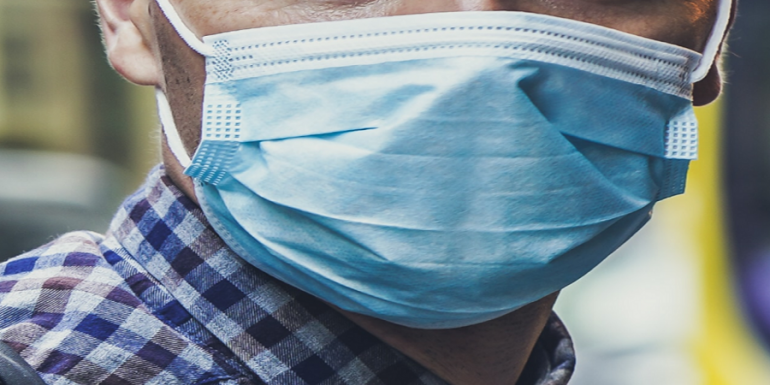Coronavirus vaccines will significantly reduce the chance of someone getting coronavirus, with severe or mild symptoms, but they do not guarantee that they will not become infected at all. Many scientists are concerned that vaccinated - and therefore more carefree - people, who will be asymptomatic carriers of the virus, will wander around and unknowingly transmit it. Therefore, despite vaccination, it is recommended to continue using the mask until it is at least clear to what extent the vaccines reduce the risk of infection itself, something that is under study.
The three vaccines Pfizer / BioNTech, Moderna and Oxford / AstraZeneca, based on their clinical trials so far, look very good in preventing the onset of the disease Covid-19, but it is still unclear how well they can "slow down" the spread of the coronavirus, something that will be seen in practice. This is because vaccine trials have so far left open the possibility that some vaccinated people will be infected without symptoms, so they will silently continue to transmit the SARS-CoV-2 coronavirus, especially if they stop wearing a mask and follow other precautions, such as keeping your distance from others.
If a not insignificant percentage of those vaccinated remain invisible transmitters of the virus, then on the one hand the unvaccinated will be at risk, on the other hand the spread in the community will continue, albeit with a reduced risk of contracting the disease.
Read also: Five genes have been identified that increase the risk of serious Covid-19
"A lot of people think that once they are vaccinated, they will no longer need to wear a mask, but they can still be contagious," Michal Tal, an immunologist and infectious disease specialist at Stanford University in California, told the New York Times.
In most respiratory infections, including Covid-19, the nose is a key entry point for the virus, where it multiplies, triggering the immune system's response to produce antibodies to the mucous tissue of the nose, mouth, lungs and stomach. If the same person is exposed to the coronavirus for the second time, these antibodies and related memory cells quickly "slow down" the virus in the nose before it can spread elsewhere in the body.
On the other hand, coronavirus vaccines are inserted deep into the muscles and from there are quickly absorbed into the bloodstream, where they activate the immune system to produce antibodies. This seems to provide adequate protection to the vaccinated person from getting sick. Some antibodies will be released into the nasal mucosa after vaccination, where they will play the role of "guard", but it is not yet clear to scientists how fast or sufficient this protection will be so that the coronavirus does not multiply in the nose. If this happens, even if it does not extend to the rest of the body, the person will transmit it by sneezing or just by breathing.
Road race with a prize… nose
"It's a road race: it depends on whether the virus will reproduce faster or whether the immune system will be able to control it faster. "This is a really important question," said Marion Pepper, an immunologist at the University of Washington in Seattle.
This is why some vaccines, given orally or by nose, are better than intramuscular ones in preventing respiratory viruses. It is something that will probably be pursued in the next generation of coronavirus vaccines, in order to create faster immunity in the nose and the rest of the airway, where more is needed. Alternatively, in the future those who get the intramuscular vaccine will then take a different dose that will specifically strengthen the mucous membranes of the nose and mouth.
At present, vaccines against Covid-19, while they better protect the lungs (the source of the most severe symptoms of the disease), they are not guaranteed to protect the nose from infection. "Severe disease is easier to prevent, mild disease more difficult, and of all infections the most difficult thing of all," said University of Arizona immunologist Dipta Batatsaria.
However, both he and other scientists are optimistic that eventually the vaccines will suppress the coronavirus even in the nose or throat effectively enough, so that the vaccinated can not only protect themselves, but also not stick to other people.
"My feeling is that once someone develops some form of immunity to the vaccine, their ability to become infected will also decline. "But even if he becomes infected, the level of the virus that will reproduce in his nose will be reduced," said Akiko Iwasaki, a Japanese-born immunologist at Yale University.
Vaccine trials have so far produced no data on how many people vaccinated became infected with the coronavirus and remained asymptomatic. More data is expected along the way, as vaccine companies will study it further, including looking for antibodies specifically to the nasal mucosa of vaccinated people. A first study in patients with Covid-19 found that their antibody levels, after natural immunity (not due to vaccination), were similar in blood and saliva, an indication of parallel protection of the oral mucosa.
It is estimated that only people who have a large amount of coronavirus in their nose and mouth will transmit it to others. Previous studies in asymptomatic carriers of the coronavirus who have not been vaccinated have shown that they too may have a high viral load on their nose, which is why they are still contagious.
"The more a vaccine reduces the viral load, the less likely it is to be contagious," said John Moore, a virologist at Cornell University School of Medicine in New York.
Source: RES-EAP
